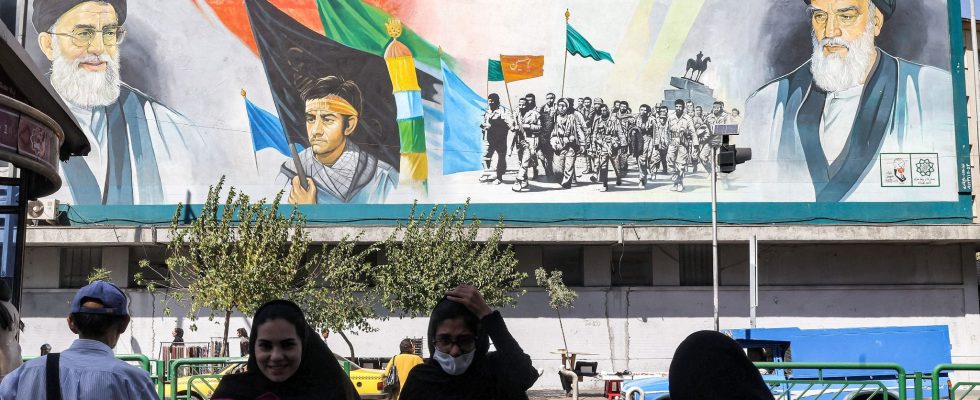What if we calmed things down? This is the option that Iran and Israel seem to have chosen. The Iranian authorities minimized, this Saturday, April 30, the attack the day before attributed to Tel Aviv in the Isfahan region, assuring that there would be no reprisals. They simply stated that “several” small drones were “successfully shot down” by the country’s “air defense system”. The operation did not cause any significant damage, says Tehran.
“It was two or three quadcopter drones, like the ones that children play with in Iran,” quipped Iranian Foreign Minister Hossein Amir-Abdollahian in an interview with the American channel NBC, adding that “ As long as there is no new adventure (military offensive, editor’s note) in the name of the Israeli regime against the interests of Iran, we will not respond.” Same story from Iranian MP Seyed Nezamedin Moussavi, who described this strike as “ridiculous”, saying that it showed that Israel “was satisfied with these ineffective actions”. For his part, a former Minister of Foreign Affairs, Mohammad Javad Zarif, even goes so far as to compare this attack to “fireworks”.
If Iran leaves gray areas over this attack – not a word in the national press – satellite images still reveal that a radar at the Isfahan air base was damaged or destroyed. Our colleagues from World specify that it was “an element of an S-300 defense system supplied by Russia to Tehran”.
If Israel did not confirm being the author of the attack, media in the United States, citing American officials, claimed that it was an Israeli operation carried out in retaliation for the unprecedented Iranian offensive. from April 13. Today, Tehran launched more than 300 drones and missiles on the Jewish state during an operation called “Honest Promise”, after a deadly Israeli strike on April 1 on its consulate in Damascus (Syria).
Low intensity attacks
For the first time, the two behemoths of the Middle East were approaching direct war. But the facts seem rather to show that the enemies maintain a logic of deterrence. While Israel had promised to retaliate, the strikes reported during the night from Thursday to Friday remained of very low intensity. The idea? Show that the Jewish state can reach the heart of the Iranian enemy, without crossing the red line. The choice of the Isfahan military air base is not insignificant: it is the eighth in the country and hosted Russian Yak-130 training aircraft in September 2023.
Also, the small type of drone chosen by Israel – possibly launched inside Iran – shows that “the Israelis did not want to cause irreversible damage”, estimates Guillaume Ancel, military columnist, on France 24. The specialist speaks of a “strategic message” sent to the Iranians.
This moderate reaction, attributed to Israel, is a sign that the rivals are seeking de-escalation. Neither Iran nor Israel wanted to cause too many losses to the enemy. In this sense, the two attacks are symmetrical. “It appears we are out of the danger zone and, as the Israeli strike was limited, it allowed both countries to back down for now,” he told the New York Times Sanam Vakil, director of the Middle East and North Africa program at Chatham House.
Repeated calls for restraint
Both foes appear to have heeded global calls for restraint. It must be said that the greatest powers in the world were in tune. The head of American diplomacy, Antony Blinken, stressed that the “objective” of his country and the other members of the G7, meeting in Capri, Italy, was “de-escalation”. For his part, the head of Russian diplomacy Sergei Lavrov had reported contacts with Iran and Israel. “We told the Israelis that Iran does not want escalation,” he said.
For Iranian political expert Hamid Gholamzadeh, “the Isfahan incident is a very insignificant act of sabotage.” With this action, Benjamin Netanyahu shows that his real concern is only Gaza, where he intends to continue his operation. In addition to the heavy human toll and destruction, the approximately 2.4 million inhabitants of the small territory are threatened with famine, according to the UN, which is urging the entry of more humanitarian aid.
